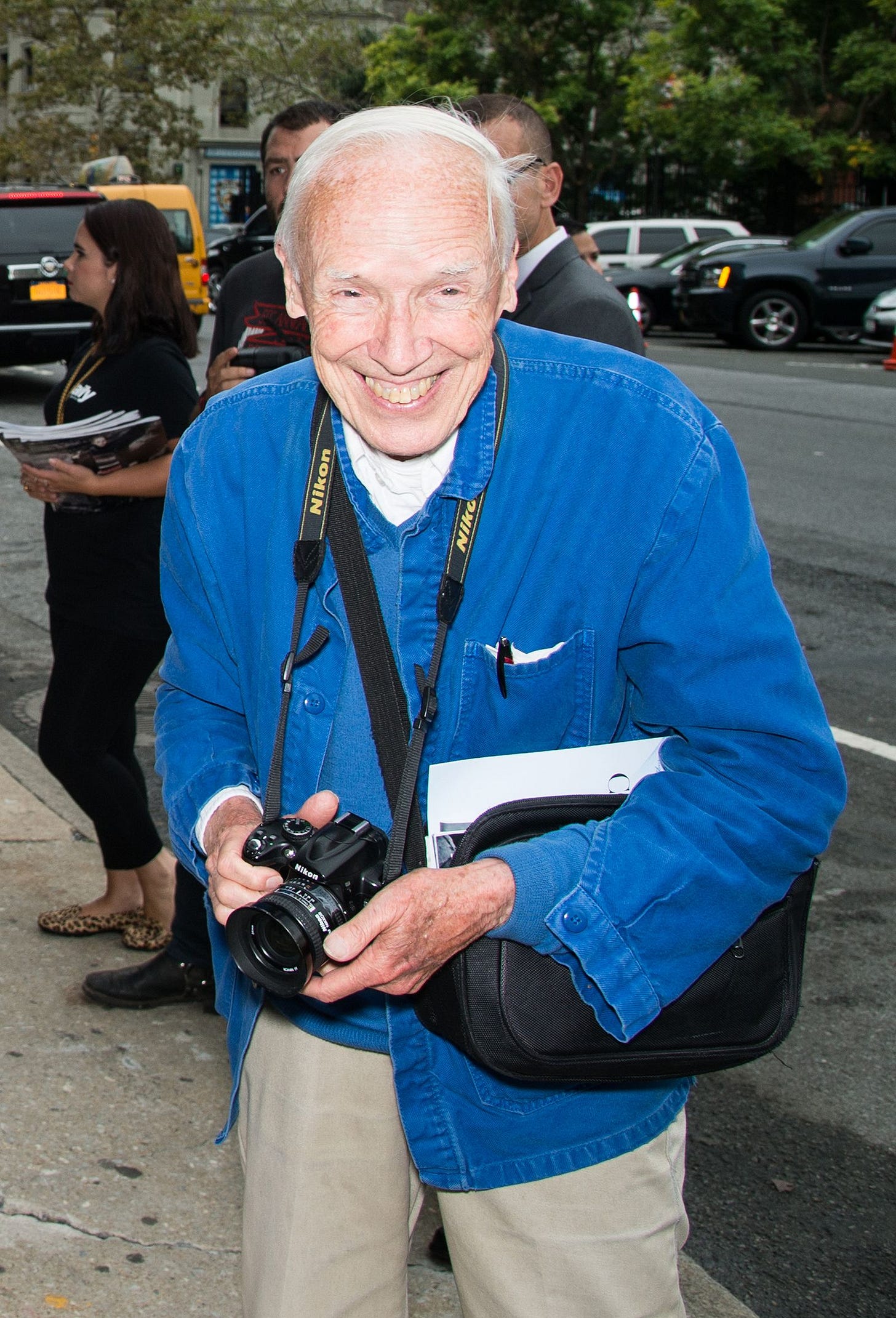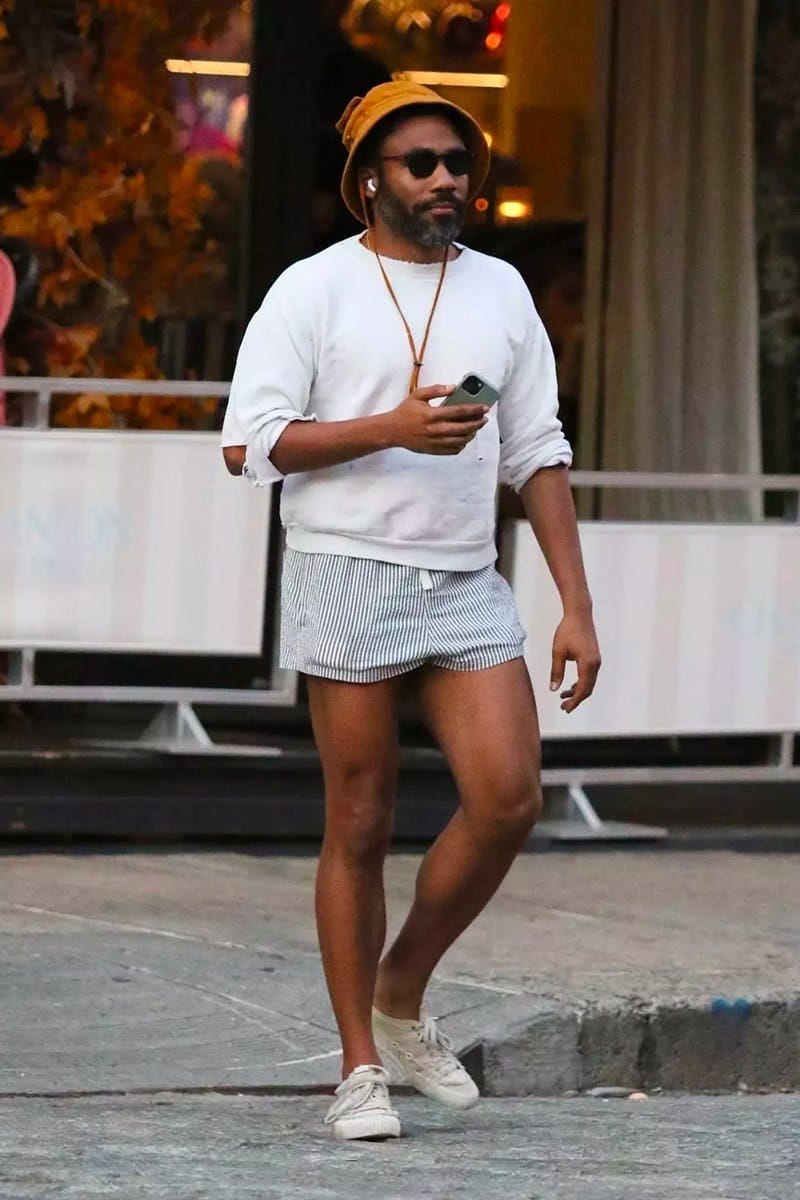Michael B. Dougherty wrote the book on men’s style—literally. So it was a bit of surprise to come across a piece on his Substack claiming that we’re in the midst of a personal style apocalypse.
“‘Personal style’—defining it, finding it, cultivating it, expressing it—has been the go-to directive in menswear for a while now, all up and down the food chain,” Dougherty writes. But what if we’ve been misled? What if the fervid pursuit of personal style has only succeeded in pushing it further and further out of reach? Like a kind of grail (but not that kind of grail).
As a menswear brand invested in a “think less, do more” approach to getting dressed—see: the name of this blog—we took a special interest in the points raised in the story. The other week, we called Dougherty, a longtime brand director and consultant, to talk through his conception of the term, creativity in the age of the algorithm, and what comes after the apocalypse.
For people who haven’t read the piece, can you provide a working definition of personal style? It’s pretty self-evident, but I think the way you use it here is a bit more layered.
I think what I was trying to get at in the article is that there seems to be a tension now between “personal style™,” as you might see dictated by an Esquire or GQ or menswear brand, and then the “personal style” that comes a bit more organically through social media.
If it’s coming from that editorial channel, it’s taking more of a how-to approach. It’s service journalism. From the brand side, it’s in service of marketing. The idea of, “Here’s how to look good, and oh, by the way, it’s our brand that’s going to do that for you.” So that’s the former. The latter is this idea of people on Reddit or Instagram or TikTok (although I’m not on it) discussing with each other, “How do I come up with a look that feels unique to me?”
And I think that's the operative word here: Everyone wants to feel unique. No one wants to be the Patagonia vest bro. They want to be Bill Cunningham or David Lynch or James Baldwin.
Can you point to a specific moment in time when you saw this shift from personal style to what might be called the Personal Style Industrial Complex?
It’s been around for a long time—as long as I’ve been working in menswear. Some of the people who commented on the piece pointed out that, at the time [10 to 15 years ago], it felt new. It felt like a fresh concept. And these tutorials, these how-tos, the service journalism or brand content around it felt genuinely helpful because it seemed like a noble goal. But I think what happened was, just by virtue of repetition, there was sort of a tyranny of it. People started to feel like, well, what if I don’t want to develop a personal style? Or, what the hell does that even mean? The more it was repeated, the less impact it had, the less organic it was. Instead of being helpful, it felt prescriptive.
I almost find the notion of personal style incompatible with Instagram and the “algorithm.” Things are metabolized so quickly. As soon as you put something out there, someone else is doing it—and then it’s not “personal” anymore.
It’s hard, especially these days, to even know what the original thought is anymore. I talked to Nick Tazza [for a recent piece], who was the original digital director at ALD. And we talked about a lot of mood boards having the same types of images wherever you go, because we’re all just pulling from the same reference points. What does that do to creativity? What does that do to innovation and culture?
In the article, you gesture to an alternative—that is, a style that flows from your life and your interests as opposed to the other way around. Can you elaborate on that a bit?
I think back to how Clay Chambers, who runs sprezza, put it—that personal taste came as a byproduct of interesting stuff the people [he referenced] were already doing. That’s the through-line to Richard Haines. He’s an artist first and foremost, and so he wants clothes with a lot of pockets because he needs to have pens and notepads. He’s sketching everywhere, so he needs pieces that have the functionality built into them. He’s just living, and the clothes he’s choosing are supporting that lifestyle.
I realize this is somewhat antithetical to the nature of our conversation…but how might guys practically put this into effect?
Don’t copy anyone, no matter who they are. You can certainly take inspiration from some of these so-called menswear icons. Especially for a guy who's maybe a little bit more reserved in his style, it’s helpful to be able to look to a Donald Glover or Tyler, the Creator and say, "Well, maybe I could integrate a color or silhouette or type of piece that doesn't come naturally to me."
But at the end of the day, it has to fit your life and lifestyle. It’s about being open to new ideas, but also being true to you. As the father of a toddler, there are ways I want to dress, say, with more tailored clothing, that does not support my lifestyle. At some point, maybe I'll go back there and that's fine. But for now, that's not the stuff I'm wearing because it doesn't naturally fit within my lifestyle.
Sometimes, I feel like we end up conflating authenticity with uniqueness. But it seems to me that what you’re suggesting is a way to have the former without necessarily requiring the latter.
I always look at the Starter Pack meme as evidence that we're not as unique as we think we are. We're following the same trends, we're following the same designers, we're into the same current ideas, so of course you're going to end up wearing the shoes or pants or jacket likeminded people are also gravitating towards. And that's fine.
If you feel bad about your style, go to an airport. You’ll instantly be the best-dressed guy there.
I hesitate to place you in this position, but do you have any predictions? What comes after the personal style apocalypse?
Oh, man. I'm truly awful at predictions. I think menswear has to have an organizing principle, right? It has to have this North Star idea. The magazines need it, the brands need it, the influencers need it. They need something to kind of coalesce around.
What that will be, I don’t know. I think inevitably some of the more rules-based aspects of the #menswear era, those will start coming back. Counterintuitively, people who never had rules are going to want rules, and whereas the rules felt fussy and antiquated a few years ago, they're going to seem helpful to a generation that grew up without them.
Any parting thoughts?
Log off, live your life, go see your friends, have interests, explore new things. Naturally, you'll wake up one day and have a personal style without even realizing it.
This interview has been edited and condensed for clarity.





Great write up!
Thanks for having me!